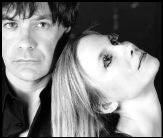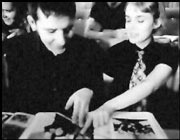“IS NOTHING sacred?”
That refrain was echoed repeatedly at its inception, but eight months into the KEXP era, one of the biggest local music stories of the year has been remarkably devoid of controversy. Fears that the partnership between the Paul Allen-spawned Experience Music Project (EMP) and the University of Washington’s KCMU might reap untold corporate havoc on the beloved station’s playlist have so far proved baseless. While there’s no escaping the on-air promotion of EMP, the 90.3 essentials—the DJs and programming—have remained firmly in place. Same John in the Morning, same Riz, same Shake the Shack, same Street Sounds. The music, it seems, really is what matters. Factor in the increased wattage and high-tech facility the station inherited in the deal, and it could be easily argued that the marriage has made for better radio.
Although the promise that the final product wouldn’t be compromised has been kept, the arrangement still merits scrutiny. Apart from the possibility that the new leadership plans to incorporate different policies over time, there are several factors that may justify the initial concerns of listeners. EMP’s financial woes are no secret. If its struggles continue, the urge to meddle—or at least make the cross-promotional efforts more aggressive—is likely to grow. And despite the station’s enhanced revenue streams, it remains a public entity reliant, in part, on the financial support of its listeners. During a recession, listeners are far less likely to give, particularly to a station with ties to one of the world’s richest men.
The station’s presence in the community has already receded a bit. KEXP now sponsors fewer shows at independent clubs, and while it continues to provide on-air information about shows throughout town, obvious deference is shown toward EMP-related events; EMP puts on some stellar shows, but plenty of people would rather eat paste than get their rock in the sterile museum setting.
A less obvious, but no less crucial, question may be whether or not the status quo at the station even should be maintained. A fair number of music lovers in the community feel that the station’s programming could use a minor facelift. The station’s roster and schedule have remained largely static for years. An expanded organizational structure might make changes of this variety more unlikely, or worse, make for the possibility that potential tinkering will be less than inspiring. Regardless, the topic of change is one that perhaps deserves to be broached, both by management and listeners. Don’t be at all surprised if KEXP evolves into a more intriguing story in 2002.
Paul Fontana









